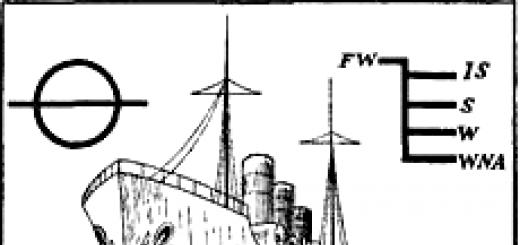At the airport, the passenger will need several documents. It is worth keeping them nearby, not putting them in luggage and presenting them at the request of authorized employees.
Passport
If you are flying on an internal Russian flight and are not going to cross the border of the country, then it is enough to have an ordinary general passport with you. Tickets in Russia can also be bought with a foreign passport. The main thing is that you must have with you during the trip the passport for which the tickets were purchased.
Traveling abroad requires a foreign passport, however, there are a number of countries that allow citizens of the Russian Federation to enter on a general passport.
If you changed your passport after buying tickets, you should contact the airline in advance and inform about it.
Your passport must contain valid visas of the countries where you are flying, if Russia has established a visa regime with these states. Usually, a visa is checked for, and if the required visa is not in the passport, the passenger will be denied boarding the flight.

If you arrived at a foreign airport, then during the passage you may be required to prove the availability of funds, hotel reservations, a return ticket and other documents, so before traveling, you should definitely find out the rules for entering the country where you are going to visit.
In special cases, passengers may need medical certificates. For example, "noticeable" pregnant women will only be allowed to board if they have a clearance certificate from their attending physician. In addition, if you need to use any medications or equipment during the flight, it is also better to clarify this in advance.
Separately, you should take care of the documents in case of a flight with other people's children, as well as when transporting animals and plants.
When flying in Russia
For adult passengers - passport
For children - birth certificate
For military personnel - military ID
For international flights
Adults must have a passport and visa. The validity of the passport and visa must not expire before the date of the return flight. If the flight includes transfers, transit visas may be required.
Children must be entered in the passport of one of the parents or have their own passport.
For unaccompanied children a notarized consent of the parents to leave is required.
For children traveling abroad with one or both parents, border guards may require proof of relationship between the child and the attendants. The only legal document confirming kinship is currently a birth certificate in the Russian Federation. The presence of the same surnames of parents and children, and a child entered in a foreign passport, are not proof of kinship.
Due to this, when traveling with children you must have originals or notarized copies of documents confirming kinship with you(guardianship, adoption, guardianship):
1. Birth certificate in the presence of the same surnames.
2. Birth certificate and certificates of new marriages with a change of surnames in the presence of different surnames.
3. A document on guardianship, adoption, guardianship in the case of deceased, missing parents or deprived of parental rights.
In the absence of documents confirming kinship, even if the parents and the minor child have the same last name, the minor child may be denied exit from the Russian Federation.
When flying to CIS countries An increasing number of countries require a passport.
Now passport required for flights between Russia and Azerbaijan, Armenia, Moldova, Turkmenistan, Uzbekistan. In addition, any trips of citizens of the above states through the territory of other states from this list are also possible only with international passports.
According to the internal passport can travel between Russia and Belarus, Kazakhstan, Kyrgyzstan, Tajikistan, Ukraine.
There is a visa-free regime between most of the CIS countries, however, for trips to Turkmenistan Russian citizens need a visa, and when traveling through Turkmenistan - a transit visa.
For citizens Russia and Georgia, which is no longer a member of the CIS, mutual trips also require passport and visa. Currently, Russian citizens can apply for a short-term visa (up to 14 days) at Tbilisi and Kutaisi airports (2 photos and 20 dollars are required for this)
Below is a complete list of documents accepted when issuing tickets:
- Passport of a citizen of the Russian Federation (14, 20 45 years old),
- Foreign passport of the Russian Federation: General foreign passport (OZP), Diplomatic passport (DP), service passport,
- National passport of a foreign citizen,
- Residence permit in the Russian Federation for stateless persons,
- Identity card of stateless persons (LBG),
- Birth certificate (for children of citizens of the Russian Federation under 14 years old),
- Sailor's passport (sailor's identity card) - when traveling on business,
- Identity card of a foreign citizen,
- temporary identity card of a citizen of the Russian Federation,
- Certificate of return to the country of which the passenger is a citizen, issued by the consulate of that country - only for proceeding to the country of citizenship
- A certificate with a photograph issued by the bodies of the Ministry of Internal Affairs of the Russian Federation to foreign citizens in case of loss of national documents on the territory of the Russian Federation - only for going to the consular offices of the Embassies of foreign states to obtain a certificate of return,
-Identity card of an officer (ensign) of the Russian Federation, CIS (except Georgia),
- Military ID of a serviceman of the Russian army on conscription, a contract with a mark of service,
- Travel ticket for a stateless person, refugee,
- International UN pass - for business trips.
For trips to the CIS countries, which are allowed to enter with internal passports, children must have a new birth certificate (indicating citizenship). Holders of old-style birth certificates must have a citizenship insert.
Pay special attention to the validity of documents. Passengers with expired passports are not allowed to fly.
If you are going to Asian and African countries, you should take care of vaccination in advance and obtain the appropriate certificate.
The passenger is responsible for the proper execution of documents and compliance with all laws, regulations, rules and regulations of the state authorities of the country, from the territory, to or through the territory of which the carriage is carried out, related to the implementation of passport, customs, currency, sanitary, quarantine and other formalities, as well as all relevant rules and regulations of the carrier airline.
The airlines reserve the right not to allow passengers to fly if they do not have proper documents.
Passengers who are not allowed to fly by the airline or employees of passport and / or customs control return the unused ticket on a general basis according to the return rules established by the airlines for passengers who voluntarily refuse to fly and they are subject to all restrictions and penalties established by the rules of the airline for their ticket categories.
Hello everyone, my dears! I remember my first visit to the airport: you get lost in the huge halls and do not know where to go and what to serve at the check-in counter. Now, of course, things are different. But so that the airport does not turn into an unknown labyrinth for you, I decided to write for you a detailed algorithm of actions at the airport.
I have to reassure you: the registration rules are very simple. Basically, difficulties arise only during the very first flight. In extreme cases, you can ask for help from any employee of the airport. However, I am sure that you will be able to orient yourself and catch the flight on time.
To get started, remember that check-in for an international flight starts at 3 hours and ends in about 50 minutes. And for domestic flights, check-in is announced two hours in advance, and they finish in 40 minutes. It is better to arrive at the airport early, I can tell you for sure.
In addition, starting the story about the procedure for going through the procedure for boarding an airplane, I hope that you have already been able to solve the issue of packing luggage. If you have not packed it, find the appropriate counter at the airport.
In this article:
1. Look for the bulletin board
So, you are at the airport but don't know where to go? First, find information monitors. They look something like this:
See how many lines? Carefully study the information that is indicated on them, it is very important. Here you will find:
- flight number (the same as in or, as it is correctly called, in the itinerary receipt),
— time of departure (or delay),
- reception number
- and whether the same registration has begun or not.
The latter can be understood by the color of the line (it is highlighted in green, and the lines below are red, for example) or by the time that is indicated in it. In general, if you have determined that check-in for a flight has already begun, remember the counter number and start looking for it.
2. Go to the check-in counters
It's time to check in for the flight, for this you need to find the check-in counters.
I will make a small digression and say that registration can be done in advance via the Internet or at the same airport through special terminals. This is done to save time.
So if you have already checked in online, printed out your ticket in advance and you do not have luggage, then you can immediately go to boarding. But if you didn't print out the ticket or if you have luggage, then you still need to go to the check-in counters. It’s just that you can do it not in 3 hours, standing in line, but a little later, when the line has already melted.
But today we will imagine that you did not go through any registration and go the traditional way. Check-in desks look about the same at all airports in the world:

These are numbered racks with a luggage receptacle. Look for the same number that you saw on the scoreboard. Found? So this is your stand. Above it is a small board that indicates which flight is being checked in at the moment.
3. Show your passport and check in your luggage
When it's your turn to check in, present your passport.
Here you can also ask for a certain place for you: by the window or closer to the opening if you are traveling with a child. If there are still places like this, you're in luck. In general, then you need to pre-register via the Internet in order to book the right places in advance.
Here you need to check in your luggage. Put it on the tape: it will be weighed and put on a special tag.
All this takes a few minutes. After that, you get a boarding pass with a tear-off stub, on which an additional sticker with information about luggage is usually glued.

Don't forget to take your passport and your hand luggage.
4. Security control and customs control
Usually the path from the check-in counter leads directly to the boarding, but at large airports this rule is not always the case. So feel free to ask during registration exactly where you need to go next.
And then you need to go through security control before boarding. The verification usually goes like this. You take off all belts, shoes and put them in special containers. Then approach the scanners through which all your things are passed.
This is where your nail scissors, razors, bottles larger than 100 ml will be thrown away and you will be told that you have packed your cosmetics incorrectly, so you will have to say goodbye to it. Therefore, do not be lazy, read the rules for carrying hand luggage.
You yourself will also be searched: either manually using hand-held metal detectors, or in special cells. Nothing complicated, just go inside the transparent chamber, put your feet shoulder-width apart, raise your arms to the sides too (there are special signs inside the chamber) and you will be scanned for dangerous things.

And if your flight is international (fly to another country), then in addition to security control, you will have to go through customs control.
For its passage there are "green" or "red" corridors. If you do not have things to declare, go to the "green" (Nothing to declare) corridor. Otherwise, you should go to the "red" corridor (Goods to declare). Here you will be offered to write an application for the declaration of goods and fill in all the necessary documents.
5. Head to the waiting room
Well, all the formalities have been completed. Now go to the waiting room. There you can sit in a cafe or go to duty-free shops.

When you hear the boarding announcement, head to your gate and join another line. Again you will be asked to show your passport, a coupon (which was given at the check-in desk), from which you will get a spine (it contains all the information about the flight). In no case should it be thrown away, be sure to keep it until the baggage claim.
6. Boarding the plane
Immediately after you have returned your passport and back to your hands, you will be shown the way to board: either through a special sleeve directly into the plane, or by bus. Have a nice flight!
Actually, that's the whole procedure for boarding a flight. I hope my little instruction will be useful to those who first decided to make a flight. I would be very happy if you share your very first flight experience in the comments.
P.S. If you liked my blog and want to receive even more interesting articles, then be sure to subscribe to updates.
Rules of conduct for passengers on board the aircraft of Ural Airlines OJSC
1. General Provisions
1.1. Air transport is a hazardous industry. The protection of passengers and crew members of aircraft from acts of unlawful interference in the activities of civil aviation, as well as ensuring flight safety, is the main priority in the activities of the airline and is provided by a wide range of measures, the implementation of which is based on the implementation of established norms, rules and procedures by all participants in air transportation.
1.2. These Rules of Conduct for Passengers on Board the Aircraft of Ural Airlines OJSC (hereinafter referred to as the Rules) have been developed and put into effect in order to ensure flight safety, increase the level of passenger comfort, and prevent the commission of various offenses on board the Airline's aircraft.
1.3. The behavior of the passenger on board the aircraft and compliance with the established rules are an important component of ensuring the safety of the flight.
2. Rights and obligations of a passenger
2.1. The passenger has the right:
- demand the provision of services stipulated by the terms of the air carriage agreement;
- apply to crew members and demand their protection in cases where his life, health or personal dignity is in danger;
- offer their services in providing medical assistance to passengers (if applicable) and/or as an assistant in preparation for an emergency landing.
2.2. The passenger on board the aircraft must:
- comply with these Rules of Conduct on Board the Aircraft.
- unconditionally comply with the requirements of the aircraft commander and the recommendations of other crew members related to ensuring flight safety:
- take a seat in the aircraft cabin in accordance with the boarding pass, and, if necessary, in order to ensure flight safety, in accordance with the instructions of the aircraft crew members;
- place hand luggage and personal belongings in specially designated places indicated by the flight attendant;
- fasten seat belts when the “fasten seat belts” display is turned on and leave them fastened until the warning display turns off.
2.3. The passenger is prohibited:
- smoking, including electronic cigarettes, during the entire flight;
- consume alcoholic beverages other than those offered on board the aircraft;
- use narcotic or psychotropic substances;
- create conditions that are uncomfortable for other passengers;
- enter the cockpit and interfere with the actions of the flight crew;
- distract or create obstacles for crew members in the performance of their duties, as well as give them instructions regarding the performance of the flight;
- use electronic devices and means of communication (including mobile phones) during taxiing, takeoff and landing of the aircraft;
- damage (disable) the property or equipment of the aircraft belonging to the airline and / or take it out of the aircraft;
- use emergency equipment without appropriate instructions from the crew;
- leave your seat when taxiing the aircraft, during takeoff, climb, descent and landing with the “Fasten your seatbelts” display turned on;
- commit acts of hooliganism and actions that humiliate the honor and dignity of others, as well as actions that may provoke aggressive actions on the part of other persons;
- treat other passengers and crew members disrespectfully and aggressively (raise your voice, use foul language against other passengers or insult flight attendants, etc.);
- get off the aircraft without the permission of the aircraft commander (crew members);
- bring weapons or imitation weapons into the cabin;
- perform other inadequate actions that may endanger the health and life of passengers or affect the safety of the flight.
- to make photo and video filming of aircraft crew members and passengers without their consent. In accordance with Art. 152.1 of the Civil Code of the Russian Federation "... the use of an image of a citizen (including his photograph, as well as video recording) is allowed only with the consent of this citizen."
A passenger who has committed the above actions, as well as who does not fulfill the requirements of the crew members to comply with the rules and regulations for ensuring flight safety and aviation security, is recognized as a violator of these Rules.
For violation of the established Rules when flying on domestic airlines of the Russian Federation, the passenger is liable in accordance with the requirements of the current Russian legislation, and when flying on international airlines - in accordance with the requirements of international air law (international conventions) and the legislation of the country of destination or the country of intermediate landing regardless of the country of registration or operation of the aircraft.
3. Responsibility of passengers for violation of the Rules of conduct on board an aircraft and failure to comply with requirements in the field of transport security
3.1. The responsibility of passengers for violation of the requirements for compliance with transport security at transport infrastructure facilities and vehicles is provided for in Art. 263.1 of the Criminal Code of the Russian Federation and Art. 11.15.1 of the Code of the Russian Federation on Administrative Violations.
3.2. To ensure the safety of passengers and aircraft crew members, on the basis of Article 107 of the Air Code of the Russian Federation, the airline (carrier) has the right to unilaterally terminate the passenger air carriage agreement in the following cases:
- if the state of health of an aircraft passenger requires special conditions for air transportation or threatens the safety of the passenger or other persons, which is confirmed by medical documents, as well as creates confusion and irreparable inconvenience for other persons;
- violation by the passenger of the aircraft of the Rules of conduct on board the aircraft, creating a threat to the safety of the flight of the aircraft or a threat to the life and health of other persons, as well as failure by the passenger of the aircraft to comply with the orders of the aircraft commander, presented in accordance with Article 58 of the Air Code of the Russian Federation;
- the presence in things that are with the passenger, as well as in baggage, cargo of objects or substances prohibited for air transportation.
3.3. In accordance with the provisions of Article 58 of the Air Code of the Russian Federation, the aircraft commander has the right to:
- in order to ensure flight safety, give orders to any person on board the aircraft and demand their execution;
- take all necessary measures, incl. coercive measures against persons who, by their actions, create a direct threat to flight safety and refuse to obey the orders of the aircraft commander;
- upon arrival of the aircraft at the nearest airfield, remove such persons from the aircraft, and in the event of an act containing signs of a crime, transfer them to law enforcement agencies.
3.4. In accordance with the Convention "On Crimes and Certain Other Acts Committed on Board an Aircraft" (Tokyo, 1963) and the practice of its application that has developed in international civil aviation, any crew member has the right to:
- take reasonable preventive measures without the permission of the aircraft commander, if there are sufficient grounds to believe that such measures must be taken immediately to ensure the safety of the aircraft or persons and property on it;
- stop serving alcoholic beverages to passengers who are in a state of both alcohol intoxication and any other intoxication;
- withdraw from passengers for the duration of the flight (with subsequent return at the end of the flight) their alcoholic drinks, including those purchased in duty-free shops on board the aircraft.
In case of termination at the initiative of the airline (carrier) of the air transportation agreement due to violation by the passenger of subparagraph "2" of paragraph 3.2. of these Rules, the amount paid for air transportation is not returned to the passenger of the aircraft.
The rights granted to the commander (crew members) of the aircraft specified in paragraphs. 3.2 - 3.4 are implemented by:
- handing over to the passenger an “Instruction on the need to stop violating the Rules of Conduct on Board the Aircraft”, if the oral request of the aircraft commander (crew member) was not met;
- drawing up an “Act on Violation of the Rules of Conduct on Board an Aircraft”, if the aircraft commander decides to remove the passenger from the aircraft and transfer it to law enforcement agencies. At the same time, one copy of the act is handed over to law enforcement agencies, the second is attached to the flight assignment, the third is handed over to the passenger.
Transportation of passengers by air, taking into account the immigration requirements of countries along the route (points of initial departure, transit stops, destinations), is carried out according to passport, visa and transportation documents - air tickets, boarding passes, baggage tags, etc.
Passport and visa documents that ensure legal entry into the country of destination or transit through the territories of other states include visas, identity cards for temporary or permanent residents, refugee documents, certificates of return for one-time trips to replace lost ones, work permits, crew documents, passports of international organizations, military certificates, diplomatic and official documents, etc.
Passport - the most common document proving the identity of the passenger, recognized as necessary and / or sufficient for domestic or international flights.
Documents for citizens of the Russian Federation when flying on domestic flights:
- passport of a citizen of the Russian Federation
- birth certificate (for children under 14)
- temporary identity card issued by the internal affairs authorities
- international passport
international flights:
- international passport
- diplomatic passport
- service passport
- sailor's passport (sailor's identity card) and a duly certified extract from the ship's list
- certificate for entry (return) to the Russian Federation.
Passengers flying to both domestic and international destinations must carry:
- documents for baggage requiring special conditions of carriage
- documents for the animal, if one is transported.
Additional documents for special categories of passengers:
- certificate of a deputy of the Federation Council or a deputy of the State Duma of the Federal Assembly,
- identity card of a serviceman of the Russian Federation (for officers, ensigns and midshipmen),
- military card for soldiers, sailors, sergeants and foremen who are doing military service by conscription or under a contract,
- certificate of release from places of deprivation of liberty - for persons released from places of deprivation of liberty,
- a certificate issued to a convict who has received permission for a long or short-term trip outside the places of deprivation of liberty,
- a temporary identity card issued to a citizen of the Russian Federation by the internal affairs authorities in case of loss or replacement of a passport.
Note. The main documents proving the identity of a citizen of the Russian Federation, according to which citizens of the Russian Federation exit the Russian Federation and enter the Russian Federation, are recognized: passport, diplomatic passport, service passport, sailor's passport (sailor's identity card "(Article 7 Chapter 2 of the Law of 08/15/1996 No. 114-FZ "On the procedure for leaving the Russian Federation and entering the Russian Federation"). In this regard, the FMS recommends issuing a passport for a child, even if he is under 14 years old. Employees of the FMS, according to their official duties, cannot refuse citizens in their request to enter information about children in a foreign passport, while they must inform citizens that they do this solely for the purpose of confirming kinship and this in itself does not give the child the right to travel abroad.
When following minor citizen of Russia across the state border of the Russian Federation, together with one of the parents, the consent of the second parent is not required if he did not submit a statement to the border authorities about his disagreement with the departure of his children from the Russian Federation. The presence of any documents confirming the degree of kinship is not provided.
If minor citizen of Russia leaves the Russian Federation unaccompanied by parents, adoptive parents, guardians or custodians, he must have, in addition to his passport, a notarized consent of the named persons for the departure of a minor citizen of the Russian Federation, indicating the date of departure and the state (s), which (s) he intends to visit. The consent of one of the parents is sufficient, if the second parent has not received a statement about his disagreement with the departure of an unaccompanied child from the Russian Federation.
When loss by a citizen of the Russian Federation passports outside Russia, a consular office of the Russian Federation or a diplomatic mission issues an entry (return) certificate proving the identity and giving the right to return to Russia.
For stateless persons in the Russian Federation, the documents proving the identity of the passenger are:
- a document issued by a foreign state and recognized in accordance with an international treaty of the Russian Federation as an identity document;
- temporary residence permit;
- resident card;
- other documents provided for by federal law or recognized in accordance with an international treaty of the Russian Federation as an identity document;
Mutual trips for citizens of Russia, Belarus, Kazakhstan and Kyrgyzstan are allowed:
- according to a general civil or foreign passport
- according to a birth certificate with an insert of citizenship of the Russian Federation for children
- according to a certificate for entry (return) to the country of citizenship on the basis of the "Agreement between the Government of the Republic of Belarus, the Government of the Republic of Kazakhstan, the Government of the Kyrgyz Republic and the Government of the Russian Federation on mutual visa-free trips of citizens" in the presence of migration cards confirming the right to temporary stay.
Mutual trips for citizens of Russia, Tajikistan are allowed:
- by foreign passport
For citizens of the Russian Federation, a flight to Armenia is possible:
- for persons over 14 years old: according to the passport of a citizen of the Russian Federation, according to a foreign passport
- for persons under 14 years old: according to the international passport
For citizens of Russia and Ukraine, mutual trips are possible if:
- foreign passport
- diplomatic passport
- service passport
- sailor's passports
- certificates for entry into the Russian Federation (in case of loss of an identity document)
- flight certificate of an aircraft crew member
Attention! Starting from April 7, a Russian citizen can stay on the territory of Ukraine no more than 90 days within 180 days from the date of first entry.
To return to the Russian Federation or the CIS countries, valid entry visas are required.
ATTENTION! It is impossible to accept a passenger for transportation to Ukraine on a military ticket or an officer's identity card.
For citizens of the Russian Federation and CIS countries, travel to non-CIS countries is in most cases possible if:
- foreign passport
- entry visa of the country of destination
- air ticket with a confirmed seat on the next flight within no more than 24 hours
- transit visa if you need to enter the city.
- passports for international travel
- entry visas of destination countries
- transit visas for transit countries
- air ticket for the next flight for departure from the country of destination, if required.
round-trip ticket with confirmed seat
For transit stops along the way, you need:
For minor citizens of the Russian Federation (infants, children), entry into the United Arab Emirates is possible only if they have their own foreign passport.
In the event that information about minor children is indicated only in the parents' foreign passports, entry will be denied at passport control upon arrival in the UAE.
For the departure of foreign citizens from the territory of the Russian Federation and the CIS countries, it is necessary:
It is also possible to fly with an e-visa. Traveling with an E-visa is possible to/from the cities of the Far East, Kaliningrad, St. Petersburg and the Leningrad region.
Detailed information is available on the official website of the Ministry of Foreign Affairs of the Russian Federation - https://electronic-visa.kdmid.ru/checkpoint.html
Foreign citizens entering the territory of the Russian Federation must have valid Russian visas, which need to get in advance (before departure to the Russian Federation) at the consular offices of the Russian Federation outside it.
At the international airports of the Russian Federation there are offices of the consular service, where the legal representatives of the Russian Federation consider emergency situations for issuing visas for the departure of foreigners from the Russian Federation.











